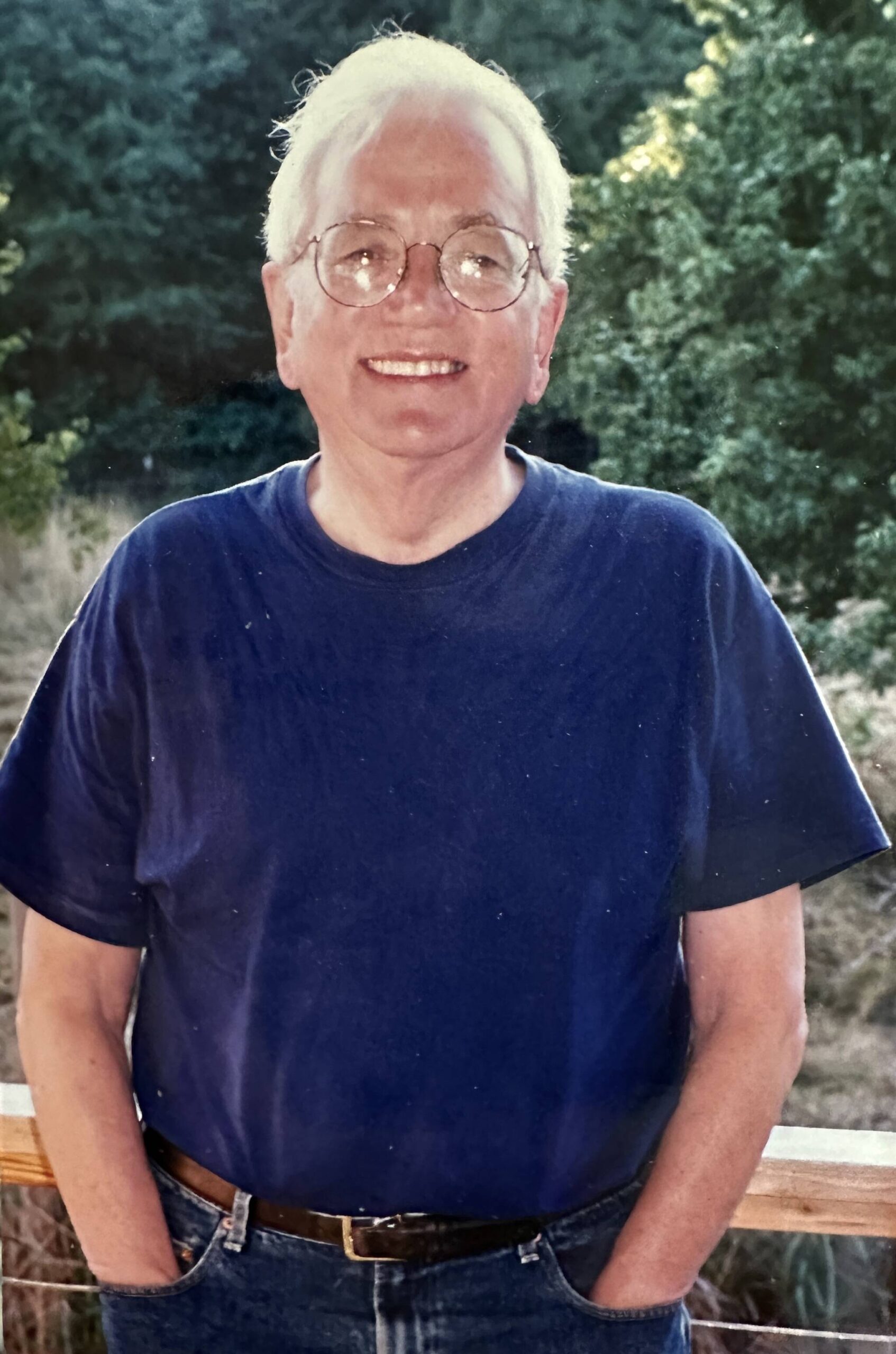David Slawson, a distinguished lawyer and scholar, died in Olga on July 17 of complications from Alzheimer’s disease.
He had a 37-year career as a law professor at the University of Southern California’s Gould School of Law, where he taught contracts.
Slawson became known for his argument in the Harvard Law Review that contracts need to be written in terms an ordinary person can understand—an indicator of his life-long commitment to justice and equality of access.
He took a leave in 1971 to serve as general counsel of the Price Commission in the Federal Economic Stabilization Program.
After his retirement, David and Kaaren moved to Orcas in 2003. He served more than a decade on the board of Sunterra Road Association and, with Kaaren, helped build a strong community among residents of Pioneer Hill Road and Cypress Lane.
He volunteered for the San Juan Preservation Trust, which he found greatly rewarding for the beauty he got to experience in our islands.
David also served several terms on the board of the Orcas Medical Foundation as it sought to get a highly competent, economically viable healthcare provider in the Medical Center building. He found the economics of rural healthcare provision daunting.
Slawson enjoyed swimming, tennis, skiing, and mountain climbing. On Orcas, he hiked with a group that styled themselves the “Tough Trekkers.” He diligently trained in pilates and gyrotonic for some 14 years with Anne Marie Schultz, having a Zoom session with her four days before he entered hospice care earlier this year.
Slawson also took great pleasure in playing with the duplicate bridge group on Monday evenings.
David enjoyed travel and spent months in Brazil and England. He also took trips to Mexico, Israel, Japan, and China.
He had great affection for the children of family members and close friends and would heroically attend plays, recitals, graduations, and other important events. David found joy in both their personalities and accomplishments.
The children in his extended family never forgot him driving 25 or so miles back to a gas station after he realized that a young attendant had given him too much change—mistaking a $10 bill for a $20.
David was born in Grand Rapids, Michigan on June 2, 1931.
After graduating from Amherst College as class valedictorian, Slawson studied theoretical physics at Princeton, where he earned a master’s degree and was a National Science Foundation fellow. He found physics somewhat isolating, but said he didn’t know what else to do. So, he joined the U.S. Army, where he served from 1954-56.
Slawson went on to Harvard Law School on the G.I. Bill and received his degree with high honors in 1959. He was note editor of the Harvard Law Review.
He moved to Denver where he became a partner at Davis, Graham & Stubbs and ran (and lost) for the state legislature as a Democrat.
At age 33, Slawson moved to a cramped office on Capitol Hill in Washington, DC as part of a small group of young hotshot lawyers who joined the staff of the Warren Commission.
It was charged with determining how and why President John F. Kennedy had been assassinated in Dallas in November 1963. Slawson had the responsibility of searching for evidence of a foreign conspiracy in the assassination.
After his Warren Commission work, David spent two years at the U.S. Department of Justice, where he helped draft the Civil Rights Act of 1964
Slawson then joined the USC Gould School of Law in Los Angeles. Shortly after arriving there, he advised Cesar Chavez, the leader of the United Farm Workers union, that a planned nationwide grape boycott was legal and not a violation of antitrust laws.
“He is a true Renaissance man,” then USC Law Dean Scott Bice said upon David’s retirement in 2004. “He was uniformly admired and was ranked among the best. And he’s a really nice human being.”
As a young law professor, David made a visit to New York City in 1968 to interview prospective faculty members. It was on that trip that he first met Kaaren, to whom he was married for 54 years.
David is survived by Kaaren, who shared many adventures with him over the years. He’s also survived by Kaaren’s devoted brother and his wife, Stephen and Linda Tofft, nephews and nieces, and many long-time, much-loved friends.
He received support from Hospice of the Northwest and skilled, spirited care during his last months from a team headed by Asenaca Naqasima. And he was grateful for the help he received from Gretchen Berger, Melanie Krueger, and Tracey Levine, as well as his many friends on Pioneer Hill Road and Cypress Lane.




